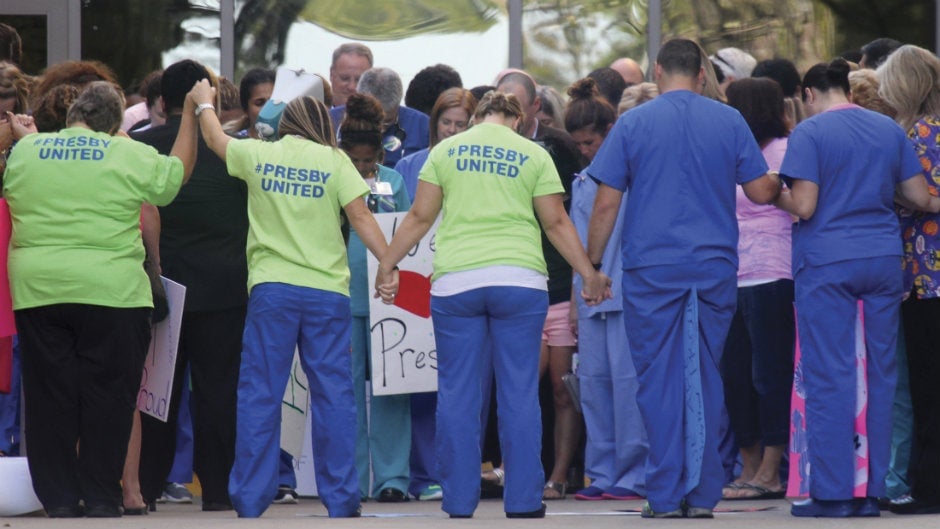When you’re an ER doctor and the answer to how you’re doing is “Ebola”
Last night I had my first Ebola nightmare. In my dream, I was in the emergency department caring for four patients with the virus, fighting desperately—and failing—to keep them alive and protect my colleagues and myself all at once. I finished the shift and waved at my three young children through a protective glass barrier because, having been splashed with blood, I was afraid to touch them.


Last night I had my first Ebola nightmare. In my dream, I was in the emergency department caring for four patients with the virus, fighting desperately—and failing—to keep them alive and protect my colleagues and myself all at once. I finished the shift and waved at my three young children through a protective glass barrier because, having been splashed with blood, I was afraid to touch them.
To an emergency medicine doctor, Ebola is just another danger, albeit one that is unusually contagious and virulent. Every year, we face off against the seasonal flu and whatever special influenza-like illness nature devises for us, whether swine or avian. We march daily into rooms of patients with possible or confirmed zoster, tuberculosis, Clostridium difficile, HIV/AIDS, multi-drug resistant bacteria, and anything else that can be hacked up, oozed out, or squirted onto us, whether through sputum, sores, urine, stool, vomit or blood. Although we have many standard safeguards in place in the emergency department, each threat must be dealt with to some extent as it comes, using our wits and best judgment. It is no different for Ebola.
Over the past weeks, I’ve been watching my most dedicated colleagues, those in leadership roles in local hospitals, national health organizations and governmental agencies, work day and night to try to head off this epidemic. Asked how he was doing the other day, one of the leaders in my hospital answered, “Ebola.” The dynamic planning and training are happening on an unimaginable scale and at staggering cost: consider how you might train healthcare workers at every hospital to follow procedures that are complex and require practice to do correctly, even as those procedures change daily to make them safer. Across the US, doctors, nurses, technicians, and hospital security workers are committed to being on the front line and taking responsibility for anyone suspected of having the disease, walking into rooms with floridly symptomatic patients even though one of Ebola’s quirks is its apparent propensity to strike caregivers.
And yet much of the popular discussion around Ebola has been deeply disheartening, especially the comments of those on attack, seeking to point fingers and condemn our healthcare system and its leaders for incompetence, stupidity, mendacity or callousness. Every day I read the bold statements of armchair skeptics, full of hypotheses that “they” are doing nothing, know nothing, care about no one. Nothing could be further from the truth. Healthcare workers are losing sleep over this epidemic, committing our time and brains and hearts to it. Yes, Ebola has been a remarkable, challenging foe. But our response can be remarkable too: we can conquer our irrational fears, put our energies toward relief and containment efforts in West Africa and here in the US, and bolster, rather than degrade, the morale and courage of those fighting on everyone’s behalf.